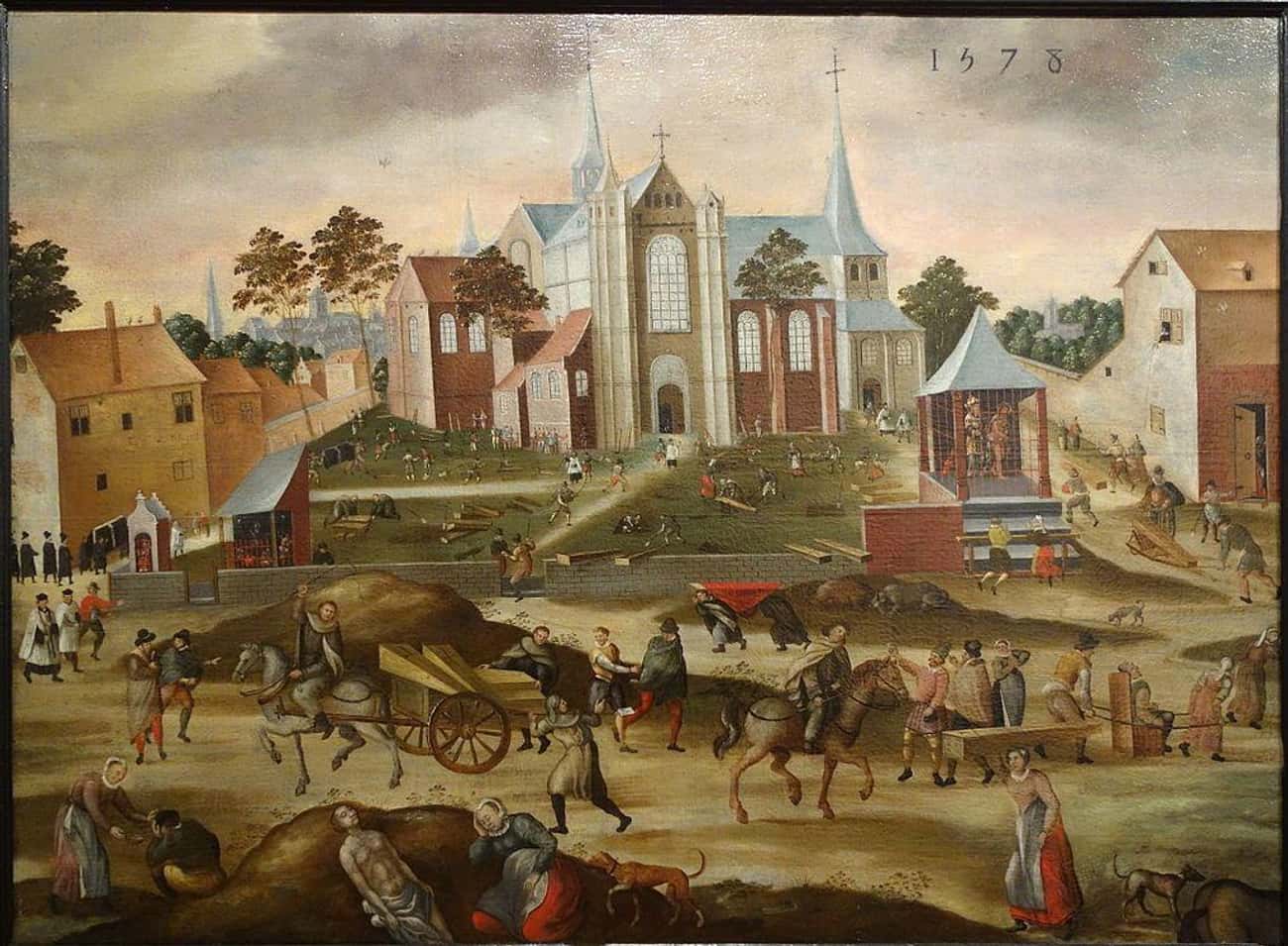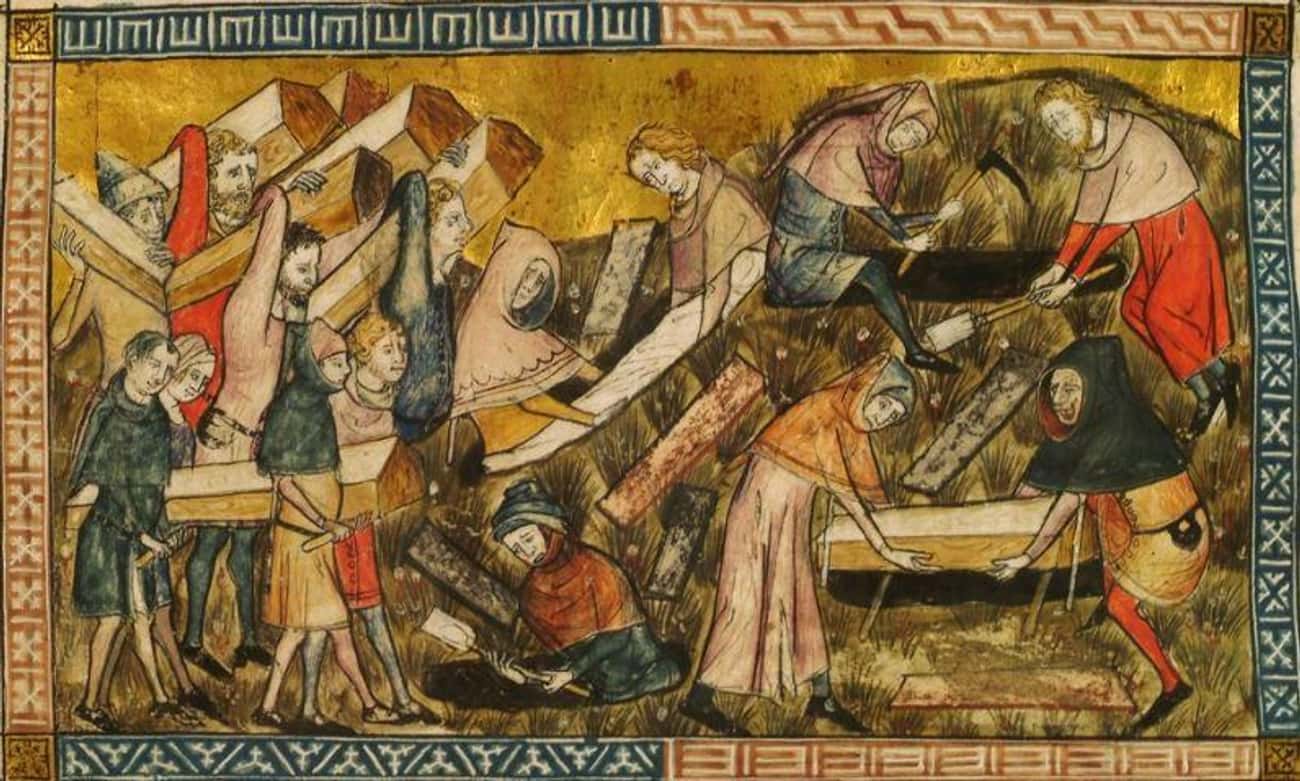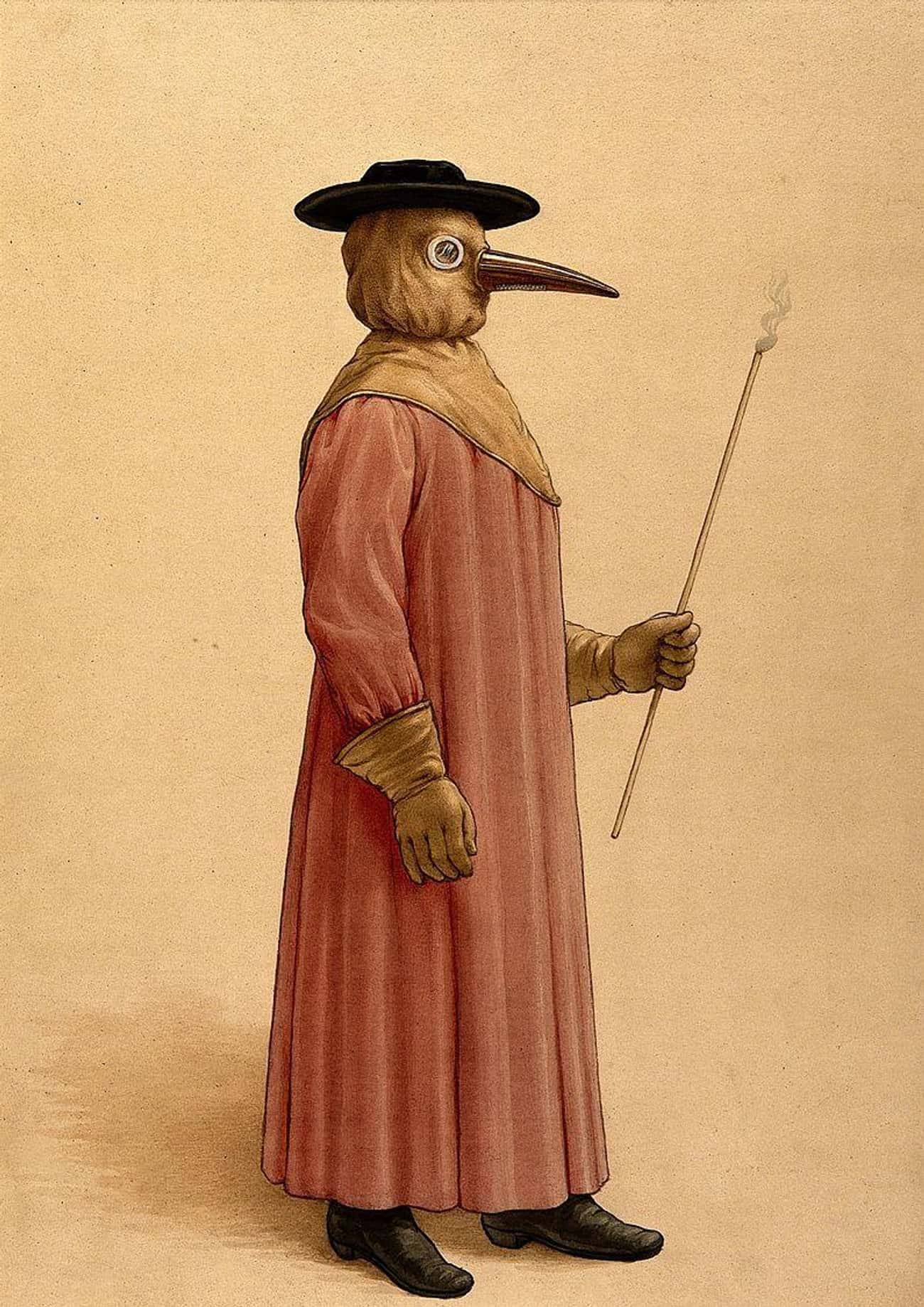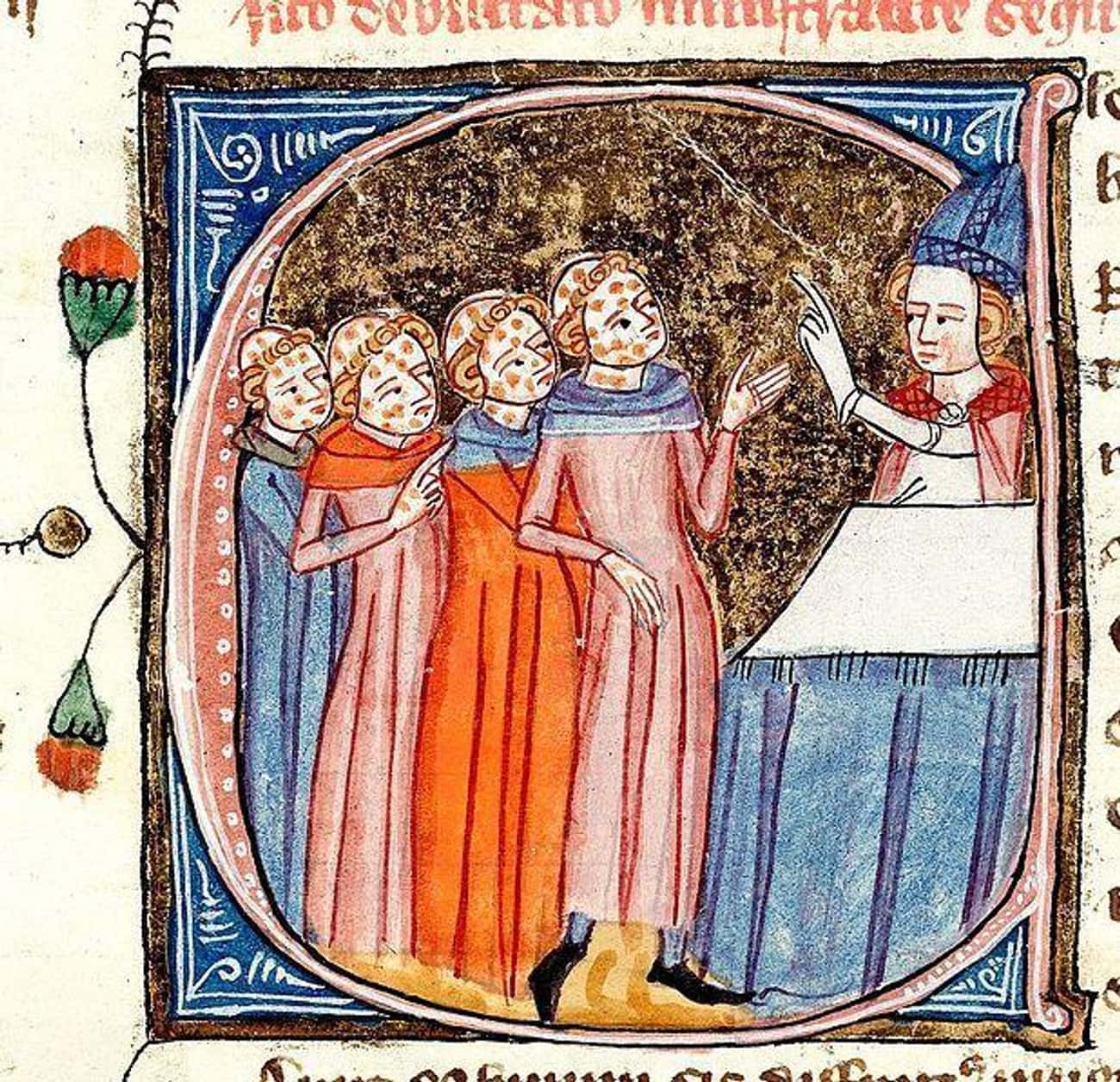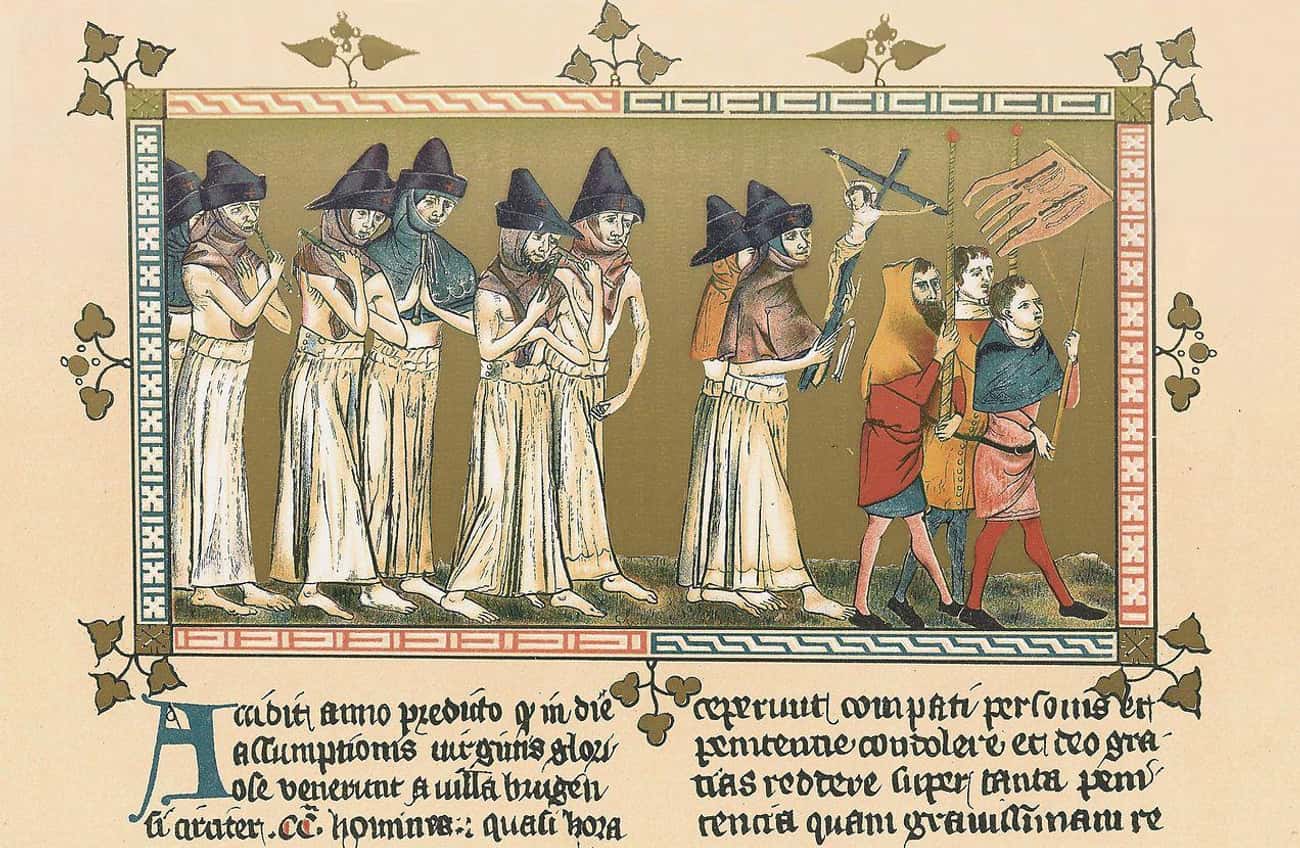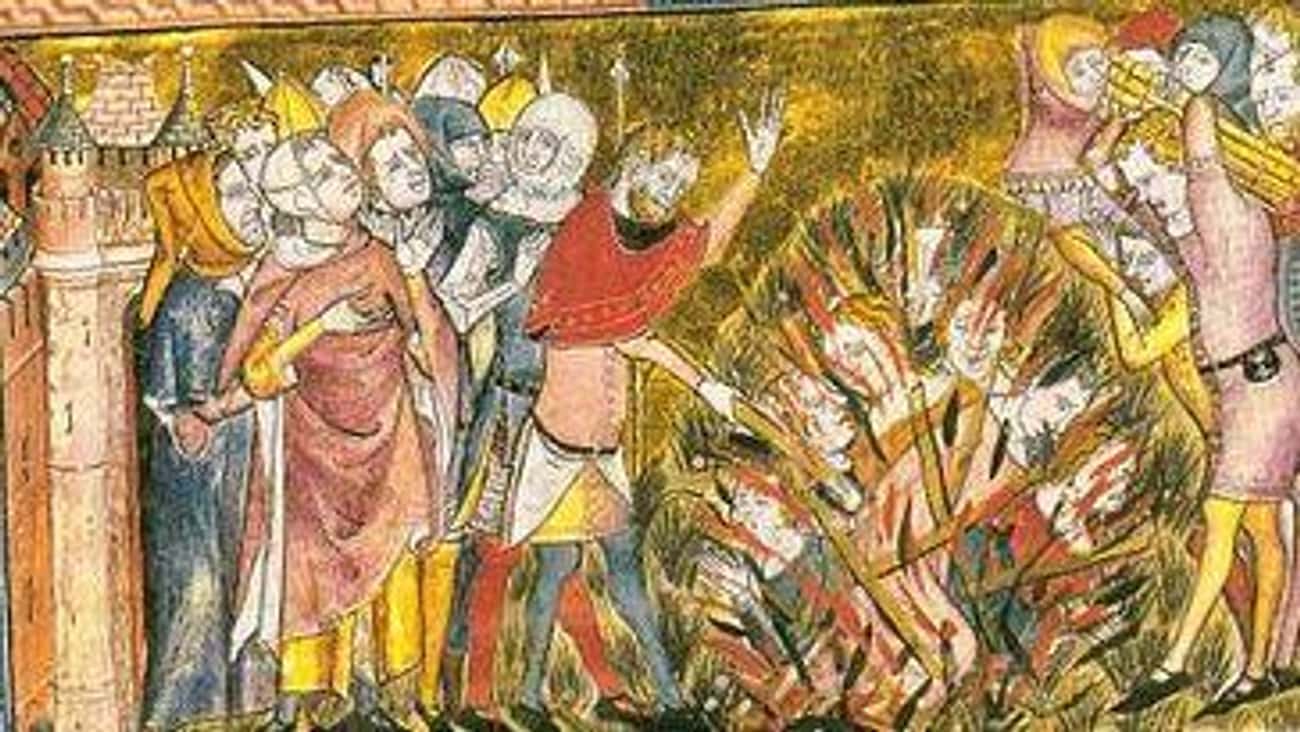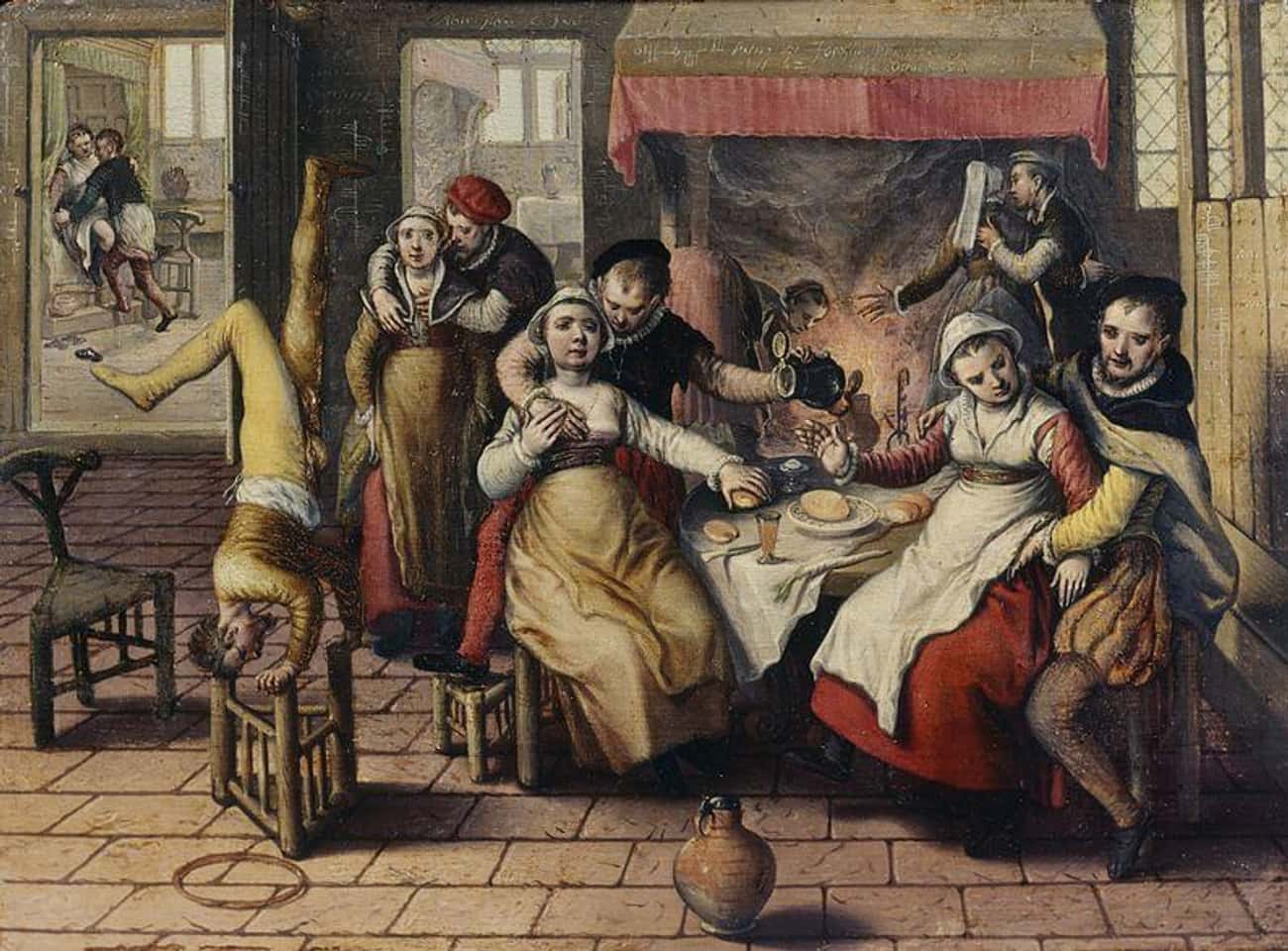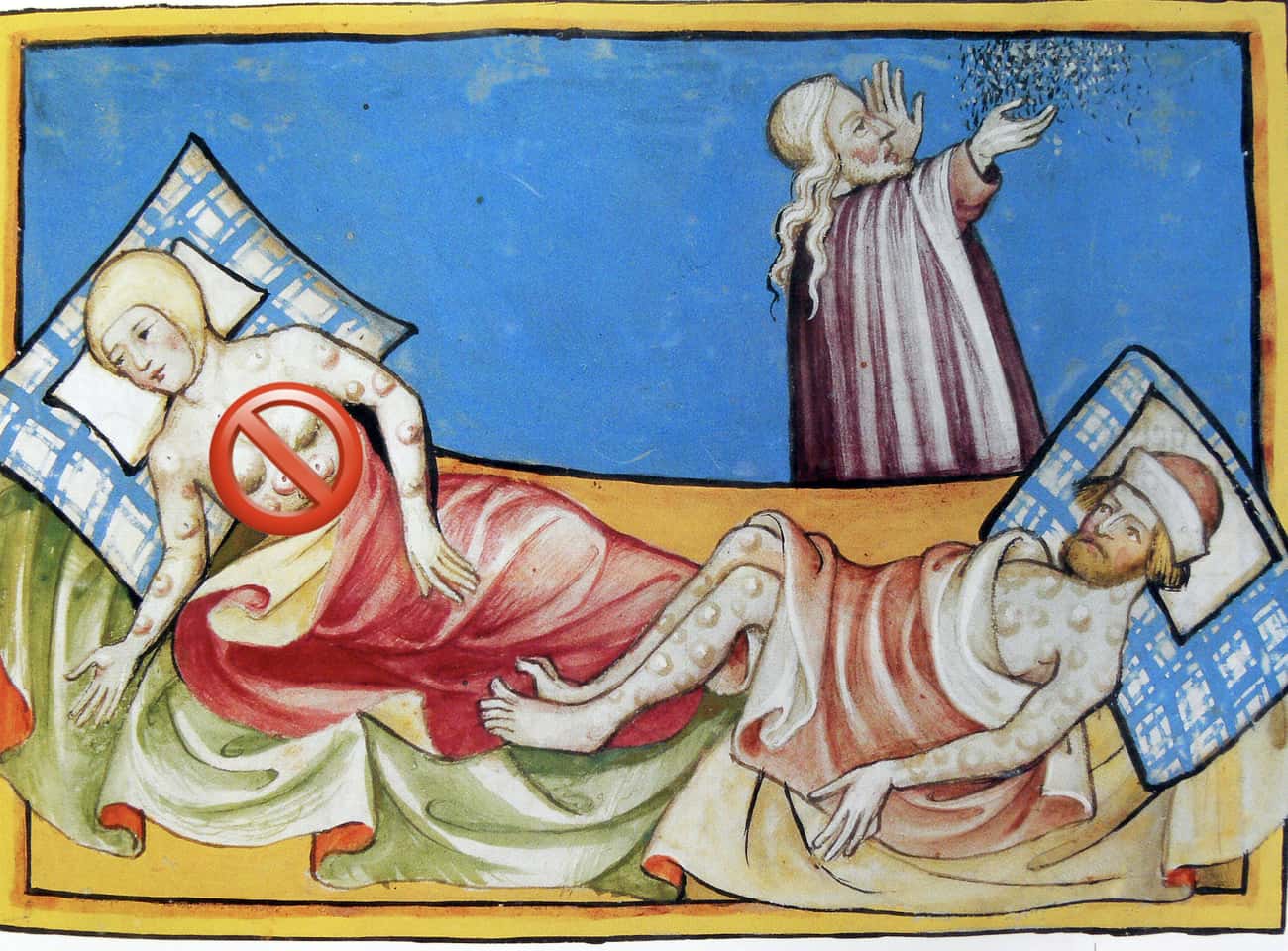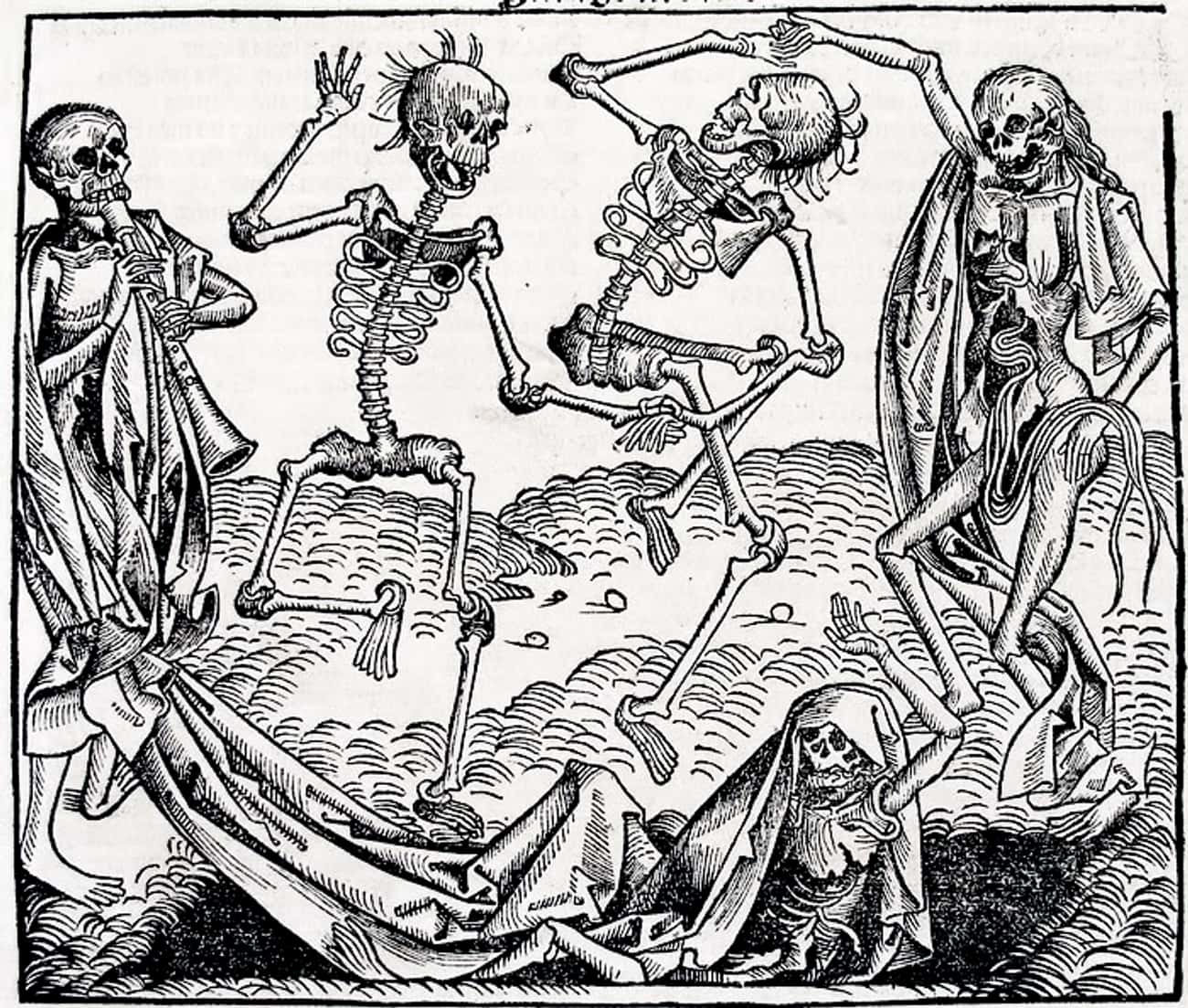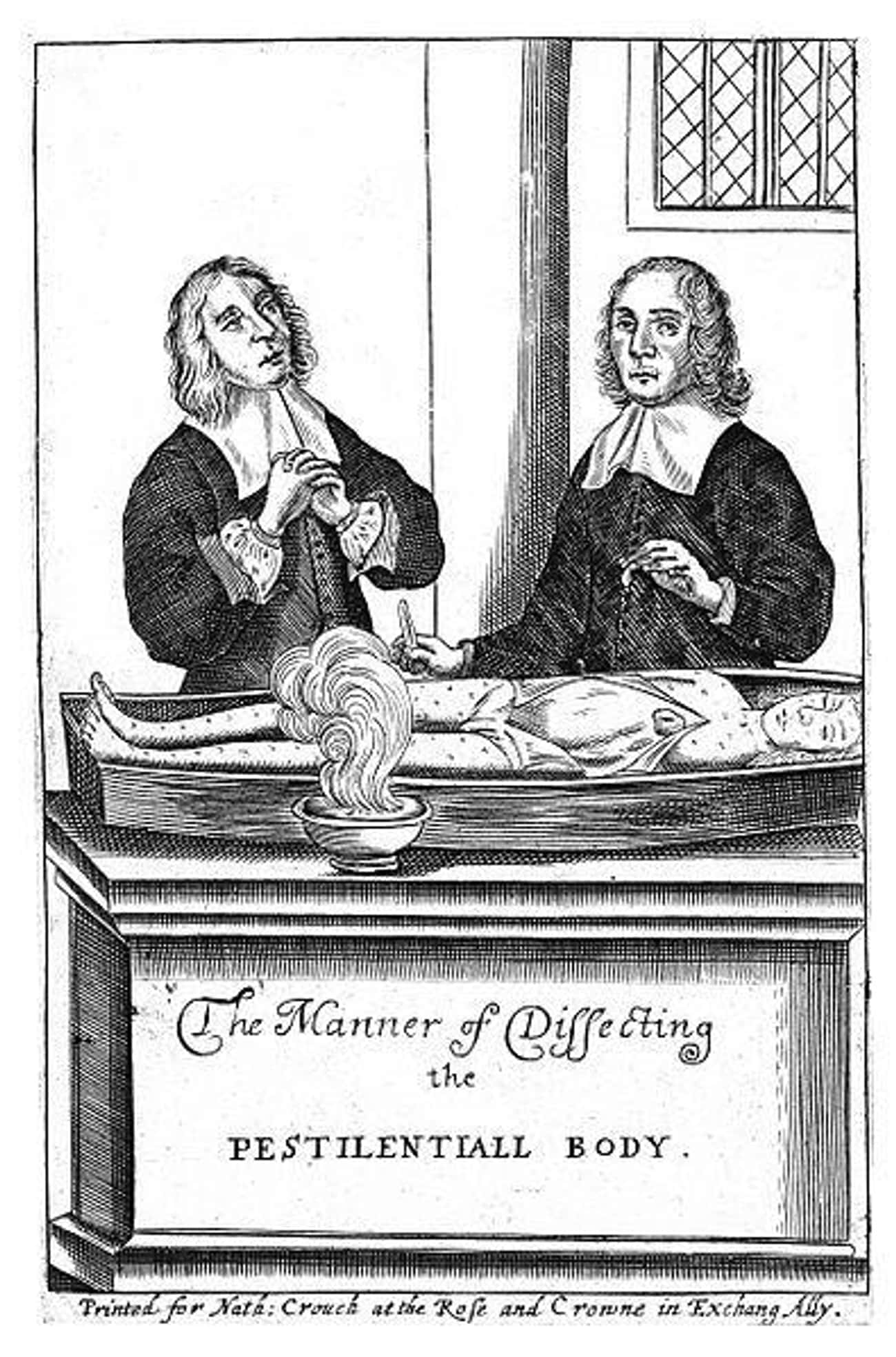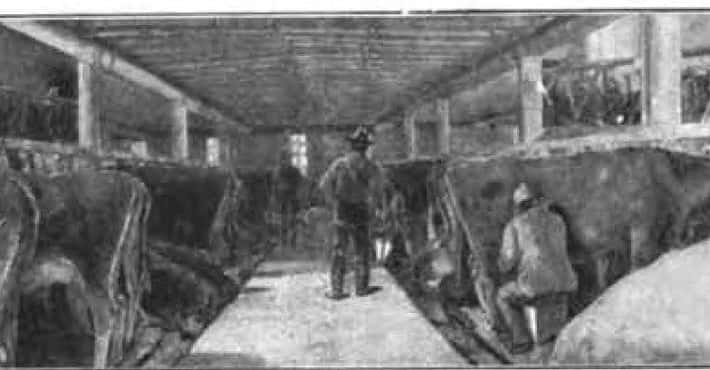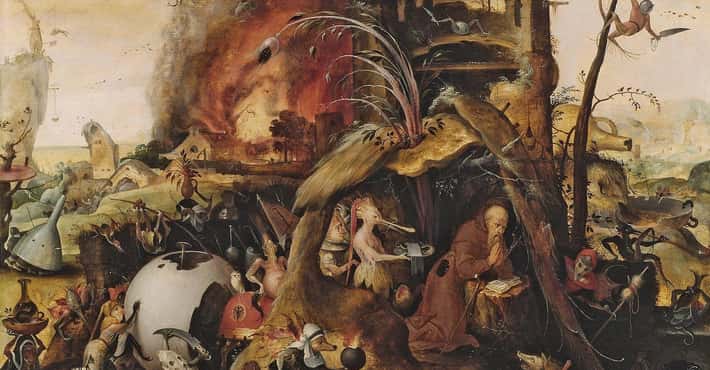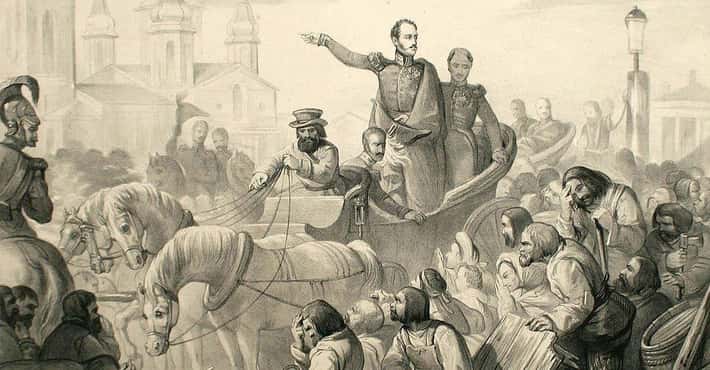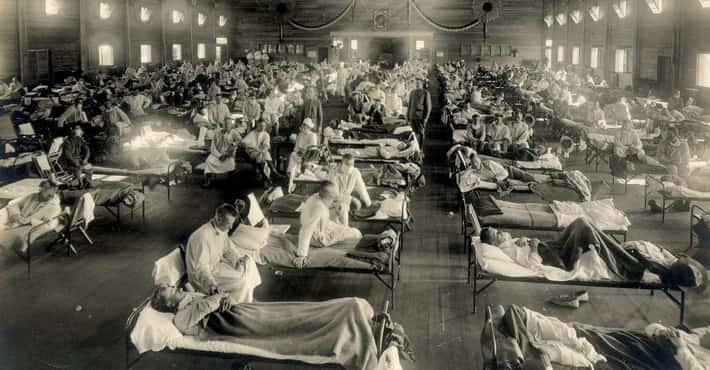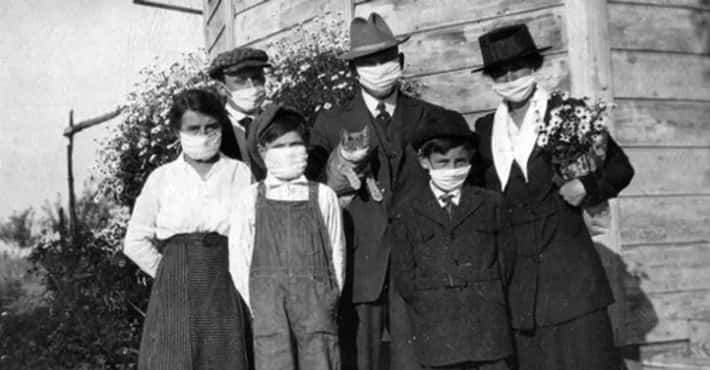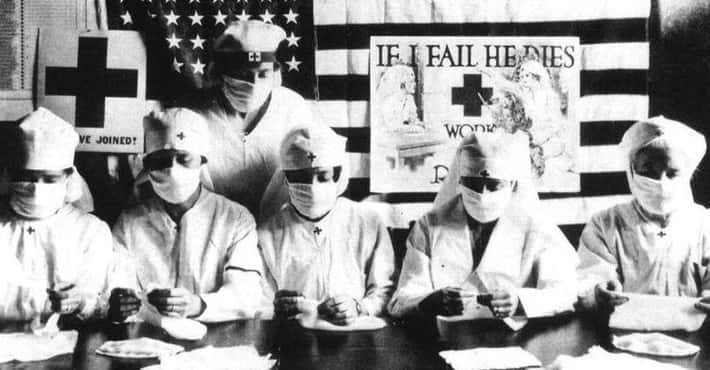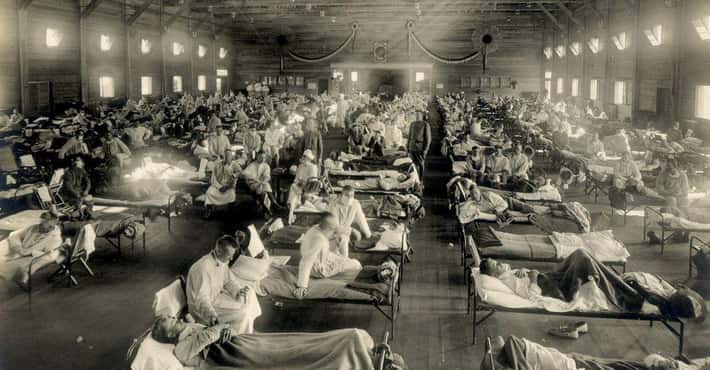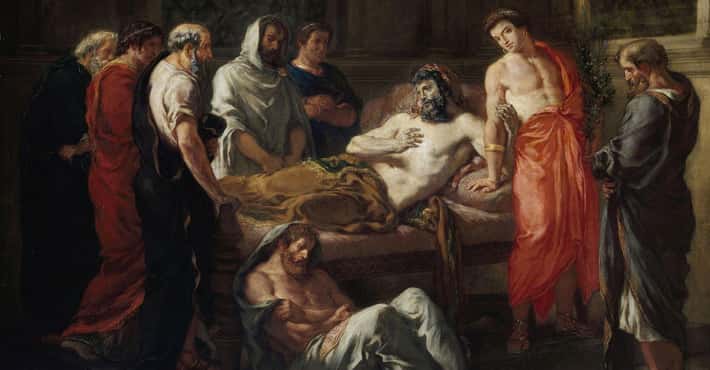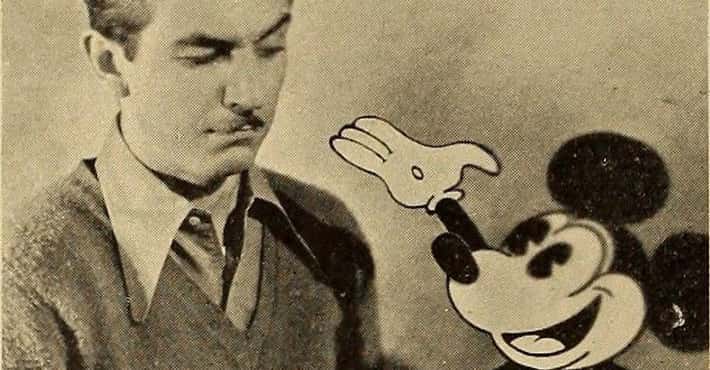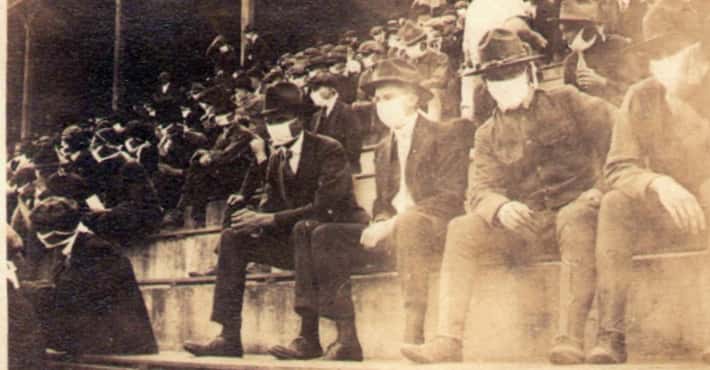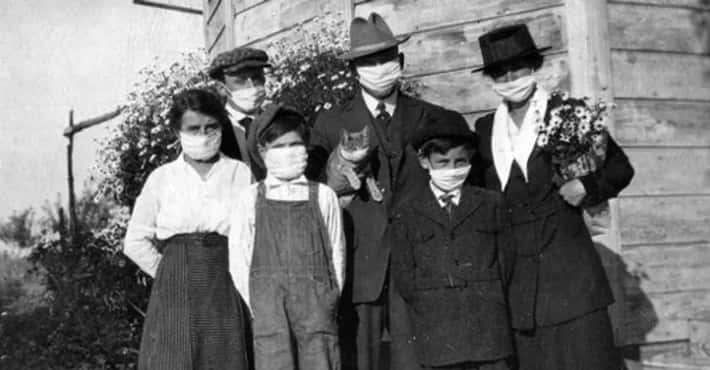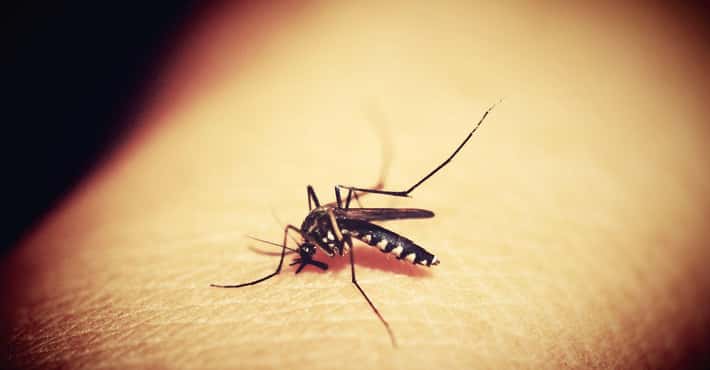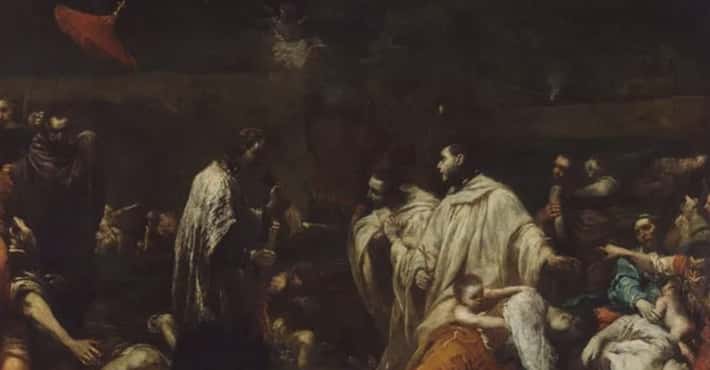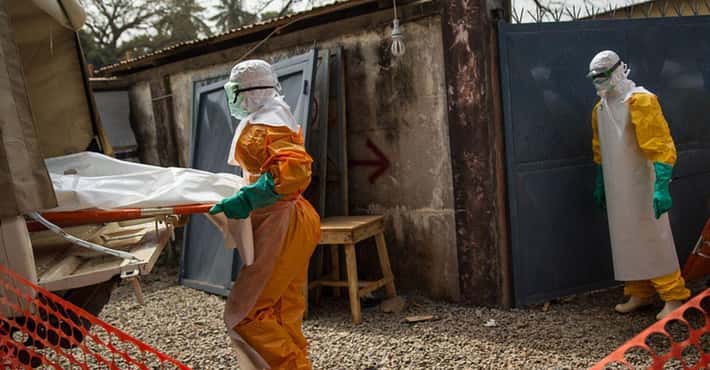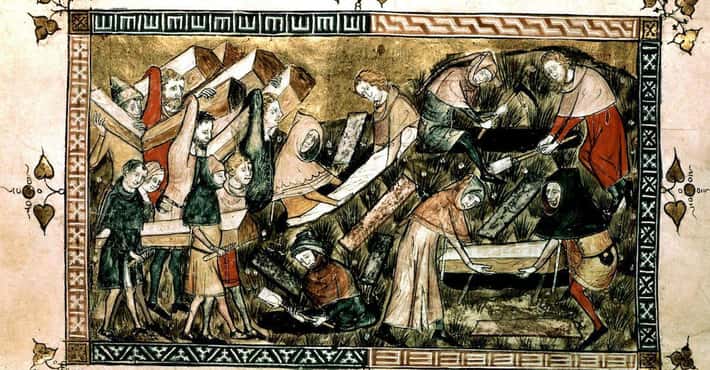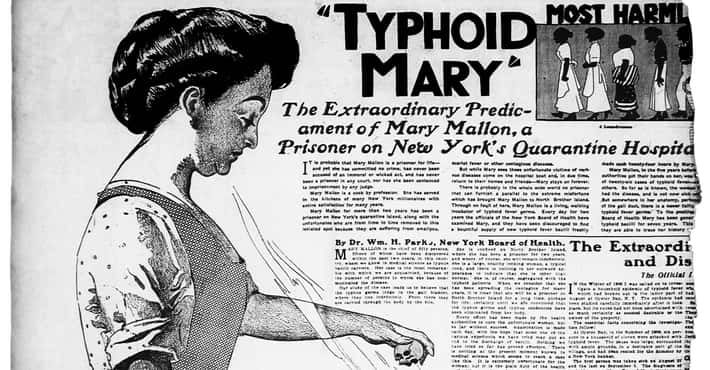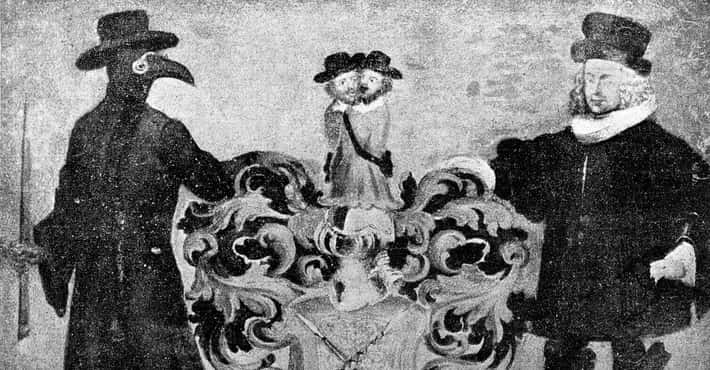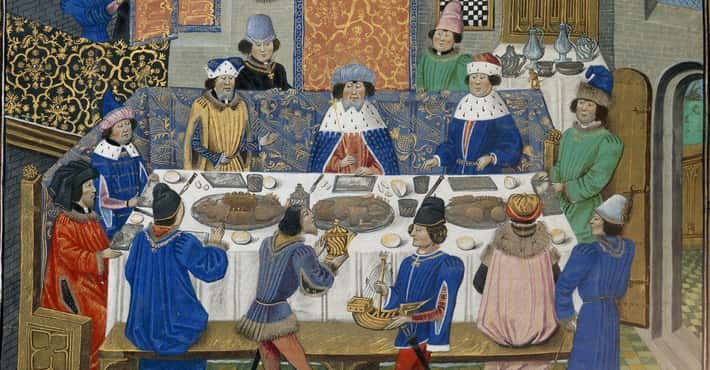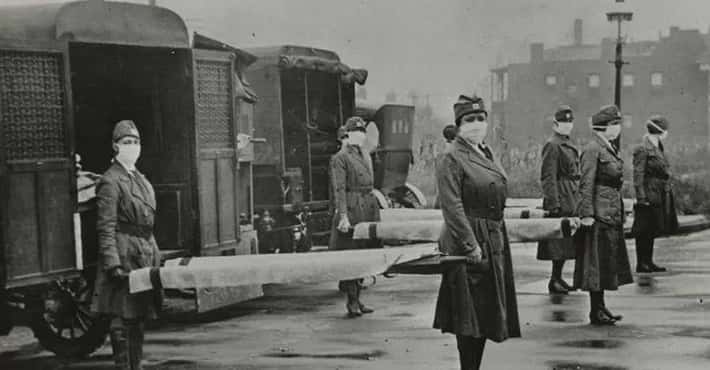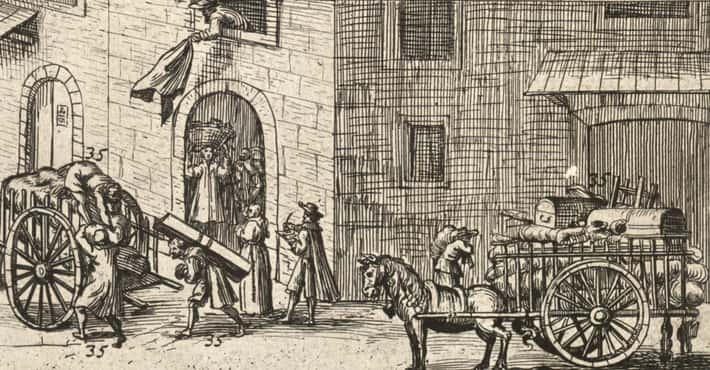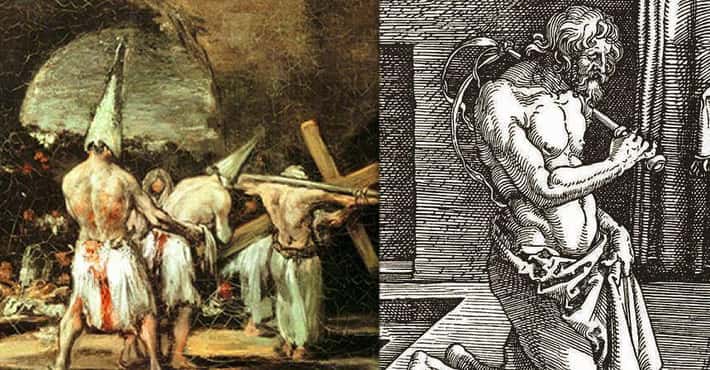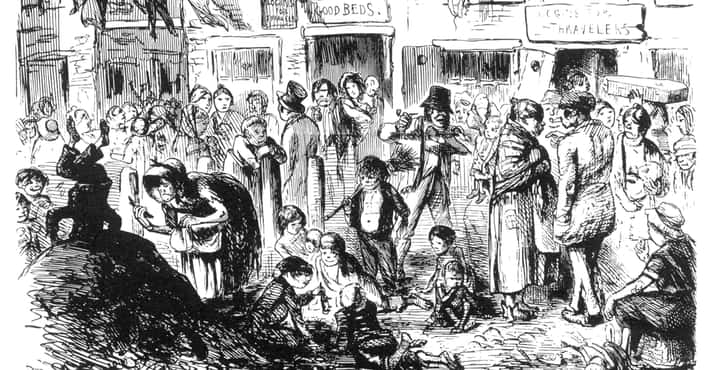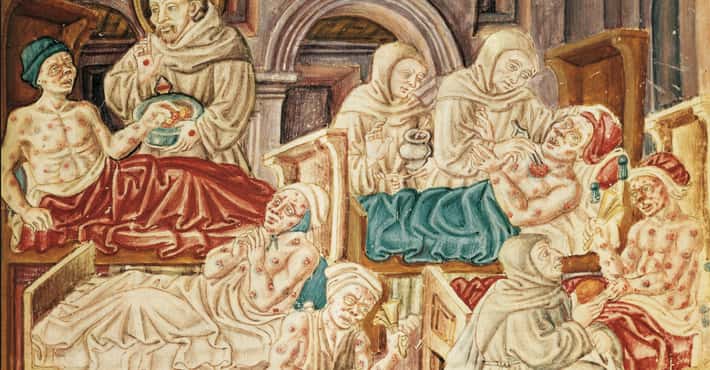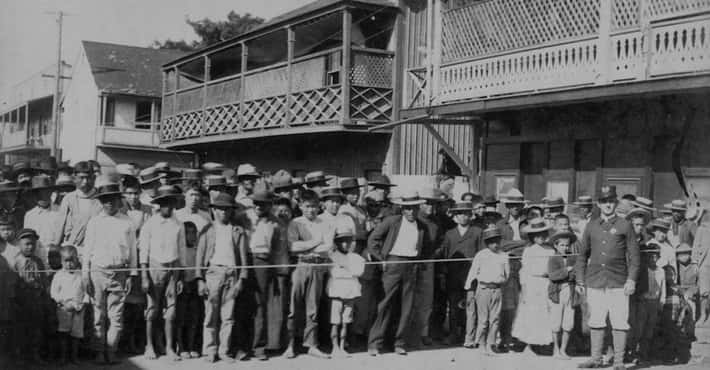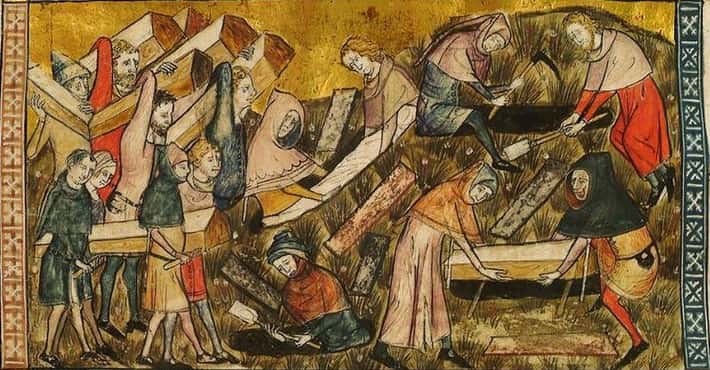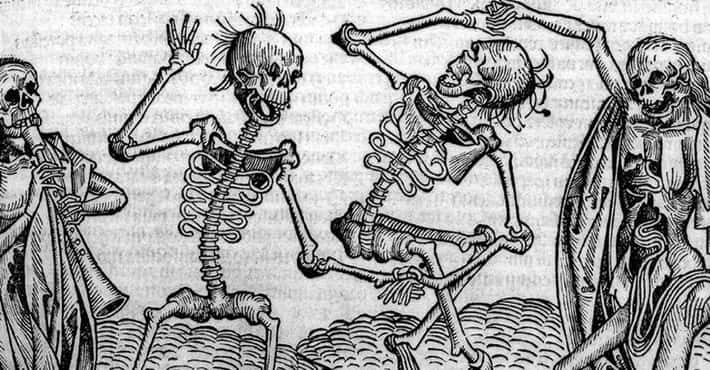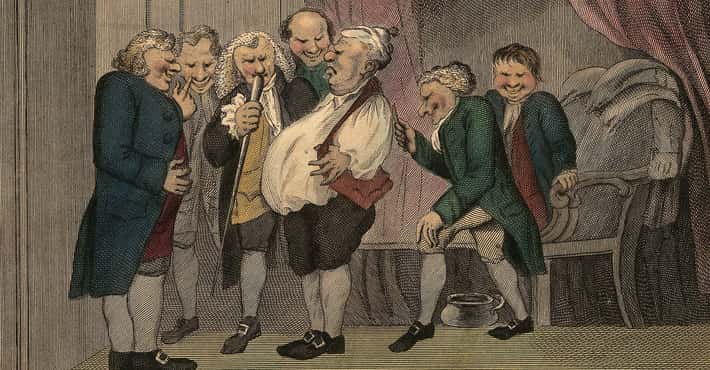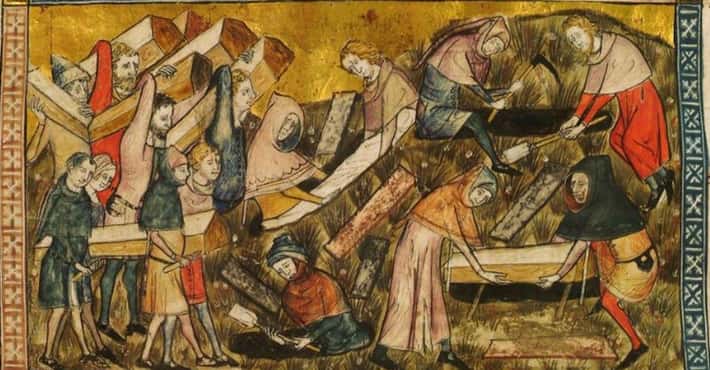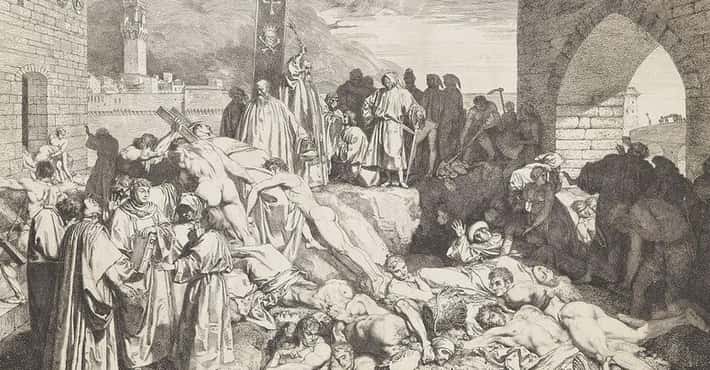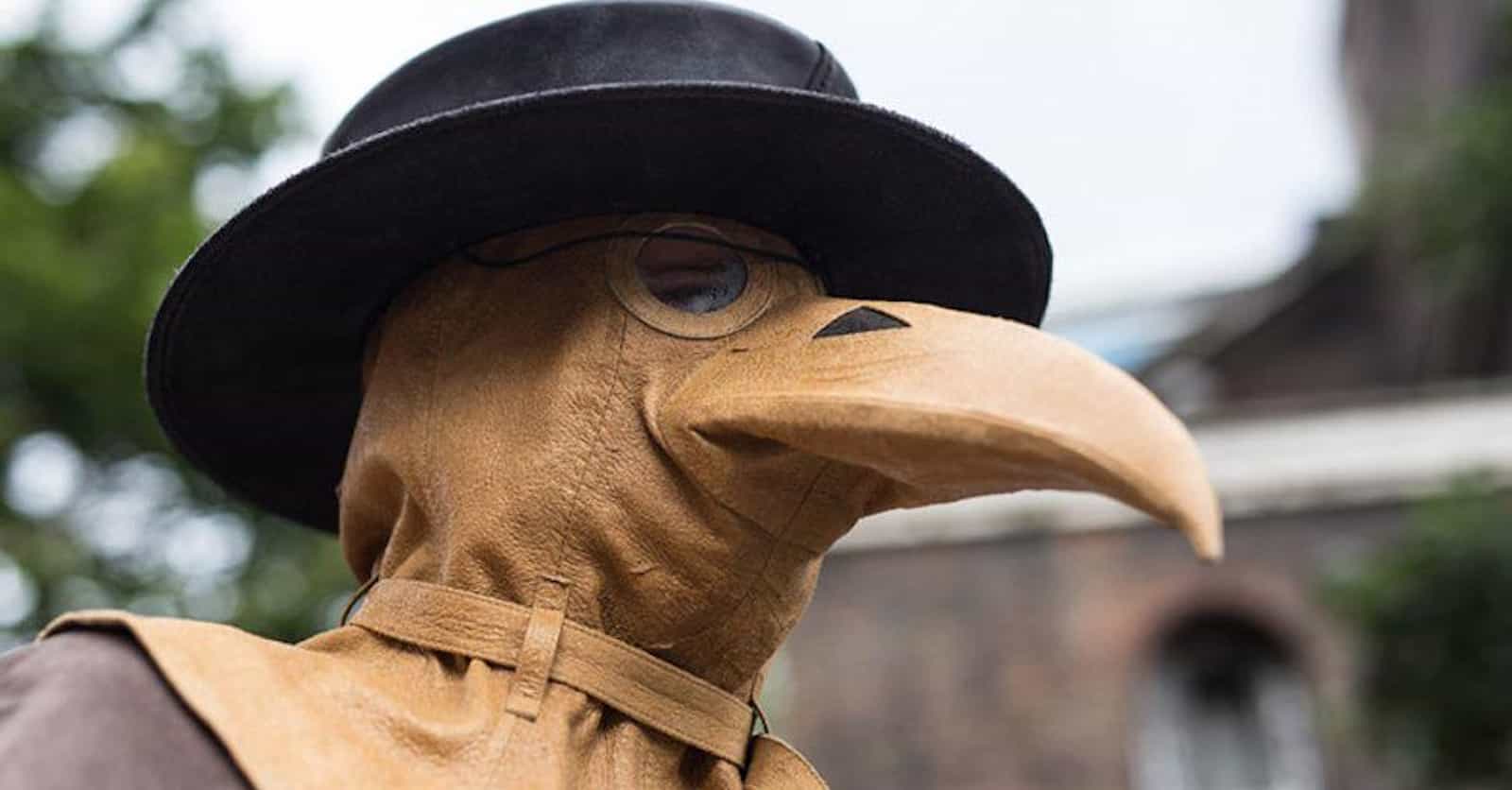
An Average Day In The Life Of A 14th-Century Plague Victim
Wake Up And Look Out The Window
Photo: Daderot / Wikimedia Commons / Public DomainYou wake up on a cloudy morning in late 1348 and glance out your window. Outside, you see carts hauling off the lifeless, and you can hear the wails of mourners. You're in the middle of the Black Death, the most prolific epidemic in human history. In Florence, one of Europe's most prosperous cities, 60% of the entire population perished in a matter of months.
Spread by rats infected with fleas carrying Yersinia pestis, the bubonic version of the plague quickly jumped to humans. When an infected flea bit someone, the victim rapidly came down with symptoms such as swollen buboes in their lymph nodes. About 80% of infected victims passed within a week. But the bubonic version isn't the only treacherous pestilence spreading across Europe.
Stop To Buy Flowers To Protect From Diseases
Photo: Carlo Dolci / Wikimedia Commons / Public DomainIt's the 14th century, and everyone believes flowers protect against plague. After all, diseases spread because of foul smells, also known as miasmas, so flowers block them out. Just before the plague struck Italy, earthquakes rocked the ground, and the doctors claimed the earthquakes released pockets of "corrupted air" causing the plague. These toxic vapors targeted people, but many believed flowers provided some protection from the bad air.
Since you're heading to your new job as a grave digger (a growth industry in 1348), you figure it's better to be safe. So, you pick up a bouquet and hold it in front of your face as you walk to work.
Toil As A Grave Digger, Trying To Avoid The Plague Victims
Photo: Pierart dou Tielt / Wikimedia Commons / Public DomainThe epidemic created a public health crisis. With thousands of bodies accumulating on the streets of European cities, authorities needed a plan to dispose of them. Florentine city leaders hired the economically disadvantaged to carry the bodies away. Consecrated ground was in high demand, and most grave diggers didn't bother to bury each body individually. Instead, they tossed victims into mass graves. One Florentine chronicler wrote:
All the citizens did little else except to carry dead bodies to be buried... Those who were poor who died during the night were bundled up quickly and thrown into the pit... They took some earth and shoveled it down on top of them; and later others were placed on top of them and then another layer of earth, just as one makes lasagne with layers of pasta and cheese.
Since you need the money, you spend all morning carting plague victims to the ominous graves. Once you dump the last of the bodies, it's time to leave but, on your way home, you run into an even more terrifying sight.
A Plague Doctor Stops You On The Street And Says You Don't Look Good
Photo: Wellcome Images / Wikimedia Commons / CC-BY-4.0Boccaccio, an eyewitness to the plague, wrote dismissively of doctors who had no clue how to cure the disease. "Against these maladies, it seemed that all the advice of physicians and all the power of medicine were profitless and unavailing." Doctors themselves perished in droves from the plague, since they were frequently exposed to it while tending patients with almost nothing to protect them from the disease - other than flowers.
However, during this and later plague epidemics, doctors developed a distinctive plague outfit including an off-putting mask that covered the entire head with a long raven-like beak, which the wearer stuffed with flowers for protection. The sight of a masked plague doctor became a common, if not terrifying, encounter during times of outbreak.
On your walk home from digging graves, you run into a plague doctor. He says you don't look too good. Suddenly you notice the sweat on your forehead and a pounding headache. Could it be the first symptoms of the plague?
A Friend Checks Your Body For Buboes But Doesn't Find Any
Photo: Wikimedia Commons / Public DomainAs soon as you get home, you ask your best friend to check your armpits for buboes. By late 1348, everyone knows plague victims were first struck with a fever, followed by black swelling in the groin and armpits. Most victims perished within three days of first showing symptoms. And during this epidemic, Europeans knew the disease was contagious, even if they weren't exactly sure how it spread.
As Boccaccio wrote, contact "seemed to transfer the sickness to anyone touching the clothes or other objects which had been handled or used by its victims."
You remember dumping plague victims into those graves. How careful were you not to touch them? But, when your friend examines your armpits, he doesn't find anything. At least, not yet.
Check Your Astrological Chart For Comets
Photo: Wellcome Images / Wikimedia Commons / CC BY 4.0As your fever rages, you rush to examine your astrological chart. Everyone knows the stars can cause disease. The medical faculty at the University of Paris officially declared bubonic plague was caused by an astrological event. A “triple conjunction of Saturn, Jupiter, and Mars in the 40th degree of Aquarius, occurring on [March 20, 1345]” created the pestilence, they reported authoritatively.
But before you find the chart, you remember a strange thing you saw recently: a comet streaking across the night sky. The evil comet must have caused your sickness.
Visit The Local Church To Pray
Photo: James le Palmer / Wikimedia Commons / Public DomainWith sweat pouring down your face, you rush to the nearest church. If God sent the plague because of mankind's sins, your best protection now is prayer. An all-powerful God must have unleashed the plague, a new biblical-level calamity to punish sinfulness.
But when you reach the chapel, you find it empty. Then you remember hearing priests were passing from the plague even faster than anyone else. Apparently their religion didn't protect them, and you even heard of entire monasteries where every single monk succumbed to the plague. Maybe the church isn't the best place to protect yourself from disease after all.
Join The Flagellants Trying To Please God
Photo: Paul Fredericq / Wikimedia Commons / Public DomainThere's no denying it: you've caught the plague. Even if buboes haven't appeared yet, you can tell that something is terribly wrong. Your head aches. Your limbs feel weak. Suddenly it's harder to breathe. Turns out you've caught pneumonic plague, the worst version of the disease. In all likelihood, you'll be lifeless by nightfall.
But you aren't ready to give up yet. You notice a group of people gathered in the town square. It must be the flagellants, religious penitents punishing themselves to repent. You stagger over and ask for a lash, watching the men and women trying to placate an angry God. But the lashes only make you feel worse.
Accuse The Town's Jewish People Of The Plague
Photo: Wikimedia Commons / Public DomainAs your body grows weaker, you become enraged. You're a good Christian - sure, you've committed a few sins, but who hasn't? So why would God give you the plague? Suddenly you hear someone nearby muttering about Jewish people. Though your town only has a small Jewish population, you've heard rumors about what happened in Switzerland. Jewish individuals were accused of contaminating the wells to infect people with plague.
After capturing the accused Jewish people, the Swiss authorities mistreated them until they confessed, and then burned the innocent people alive. A French chronicler named Jean de Venette reported that “Christians massacred [people of Jewish heritage] in Germany and other parts of the world... and many thousands were burned everywhere, indiscriminately.” This sort of prejudiced canard was the result of a longstanding practice of Christians turning Jewish individuals into scapegoats for various unfounded reasons.
But before you can join the hate group, you hear something else and it stops you in your tracks: music.
Head To A Call House Because Life Is Short
Photo: Joachim Beuckelaer / Wikimedia Commons / Public DomainBoccaccio reported any became hedonists in the face of the plague. They argued that "an infallible way of warding off this appalling evil was to drink heavily, enjoy life to the full, go 'round singing and merrymaking, gratifying all of one's cravings whenever the opportunity offered." Of course, Boccaccio also pointed out everyone met their end regardless of what they did.
But when you hear the music, you turn toward the door of a nearby call house. Apparently the plague hasn't closed off all the businesses in your town. You head inside, thinking that if God's already angry, there's no point in holding back. But the man at the door turns you away because you'll scare the other patrons.
You Become So Weak You Can't Get Out Of Bed
Photo: Wikimedia Commons / Public DomainYou stumble back to your house and fall into bed. Thankfully, a nearby doctor notices your trauma and offers to help. When you ask him for his medical credentials, he ignores your question. But you're too weak to fight back. The doctor pulls out two live chickens and tries to strap them to your armpits. He claims it helps with the buboes.
When you explain that you don't have any yet, he offers you a potion that glows like silver. Since you're already nearing your end, you drink it. Is that strange taste mercury or arsenic? Both were used to treat the plague. As you fall into a feverish coma, the "doctor" takes all your savings, which was hidden under your mattress, and leaves you to perish alone.
At Dusk, You Succumb To The Pneumonic Plague
Photo: Michael Wolgemut / Wikimedia Commons / Public DomainYou've only been sick for a few hours, but already you can barely breathe. That's because you have pneumonic plague. Fleas aren't the only way the horrific disease spread, unfortunately. The septicemic version traveled through people's blood, and the highly contagious pneumonic version could transmit through droplets from sneezing or coughing.
If you're unlucky enough to catch the septicemic or pneumonic version, it has a 100% mortality rate. You drift in and out of consciousness, your breath becoming shorter, until you perish.
Maybe Your Lifeless Body Will Help The Doctors, But Probably Not
Photo: Wellcome Images / Wikimedia Commons / CC BY 4.0Now you're one of the bodies causing a public health crisis in your town. When the epidemic struck in 1348, Pope Clement VI ordered the autopsy and dissection of plague victims. The pope hoped by investigating the plague, doctors would soon figure out a cure. Many physicians took him up on the offer and began cutting open plague victims.
But the medical investigations proved fruitless for centuries. The cause of the plague, a bacteria known as Yersinia pestis, was first isolated in 1894. And there was no cure until the discovery of antibiotics in the mid-20th century. Of course, that's much too late for you: after the doctors dissect your body, you end up buried in the same grave where you were toiling the morning of your demise.


